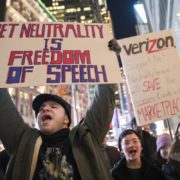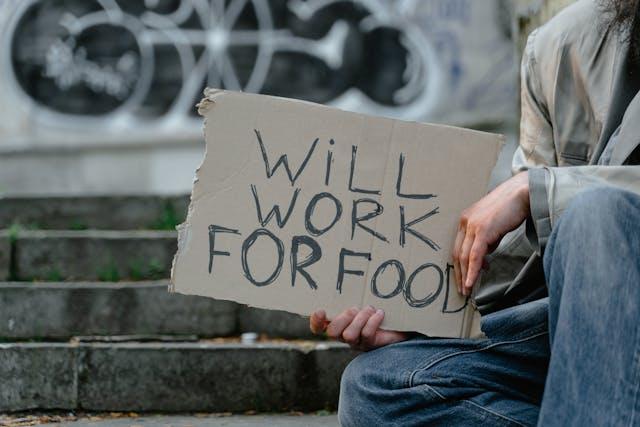Big Telecom attempts to slow down support for net neutrality by spreading “misinformation”
After the Federal Communications Commission (FCC) voted to slowly reduce net neutrality protections, Democratic lawmakers have promised to challenge the Trump administration in order to maintain open and equal access to the internet.
In California, Democratic leaders are taking that fight seriously. The California Legislature will vote on two bills this week that would implement the strongest net neutrality protections in the nation.
SB 822 would prohibit Internet providers from blocking or slowing down Internet speeds or charging websites extra fees for faster service.
According to the bill’s author, Sen. Scott Wiener (D-San Francisco), the bill would ensure “that we all get to decide for ourselves where we go on the internet, as opposed to having internet service providers tell us where we are allowed to go.”
The other bill, SB 460, would reject public contracts to companies that don’t follow these new state regulations; in other words, it would not allow companies that violate the rules established by Wiener’s bill from receiving public funding.
California Democrats argued that, without net neutrality rules that regulated telecommunications companies, providers would be allowed to sell bundled service packages that gave select websites for consumers or slow access to news sites if readers refuse to pay more for faster service.
This would put digitally-native startups at a disadvantage and, they argue, would only benefit large corporations.
Late last year, the FCC — headed by Trump-appointed chairman Ajit Pai — voted to repeal Obama-era regulations that prevented companies from discriminating against certain websites and forced websites to pay if they wanted faster internet speeds. This widely criticized move prompted protests and calls to Congress to vote against the repeal, which took officially took place in June of this year.
An overwhelming majority of voters support maintaining net neutrality, which has become a contentious issue for the upcoming midterm elections. A December 2017 survey from the University of Maryland found that 83 percent of voters (82 percent of Republicans and 90 percent of Democrats) opposed the FCC’s decision to repeal net neutrality regulations.
The term “net neutrality” was first coined in 2003 by Columbia University media law professor Tim Wu who saw a battle for Internet service beginning to emerge after some Internet providers banned some customers from using virtual private networks (VPNs) or setting up their own WiFi routers.
The term denotes the principle that Internet service providers should treat all data on the world wide web equally. In other words, net neutrality means that these providers — like Verizon, AT&T and Spectrum, for example — can’t intentionally block, slow down or charge fees for specific sites and content on the web.
During the administration of former President Barack Obama, the FCC has fought to preserve net neutrality rules. In 2009 when Apple was caught blocking AT&T iPhone users from making calls via Skype, the FCC pressured both companies to seize the Skype blocks.
In 2015, the FCC passed a broad net neutrality order that prevented companies from blocking or prioritizing any Internet traffic.
In 2018, after the current incarnation of the FCC voted to repeal the Obama-era rules, 29 states have considered their own net neutrality protections. Six governors — including those from Hawaii, New York and Montana — have signed executive orders to reinstate net neutrality, and three states — Oregon, Vermont and Washington — have passed laws to protect these rules.
The two bills that California’s lawmakers will be voting on are the most stringent net neutrality protections among these 29 states. As a way to disrupt SB 822 from gaining traction, Big Telecom has been robocalling senior citizens in the state in order to spread “misinformation” about the bill and urge them to contact their state representative to oppose the bill.
“Your Assembly member will be voting on a proposal by San Francisco politicians that could increase your cell phone bill by $30 a month and slow down your data,” says a voice on an automated call paid for by legal reform group the Civil Justice Association of California (CJAC), a group that lobbies for legislation that reduces the number of lawsuits filed against corporations. “We can’t afford higher cell phone bills. We can’t afford slower data. We can’t afford Senate Bill 822.”
The claim that the bill would increase cell phone bills is false and is not based on anything listed on the actual bill, which only calls for a reinstatement of the FCC’s 2015 regulations. CJAC has also been spreading false claims of rising cell phone bills through Facebook and Twitter ads.
“The reality is that they’ve already lived under these rules under the 2015 Obama order and they did really well: they made huge profits, they weren’t laying off workers, they weren’t jacking up people’s bills,” Wiener said. “This is just all played-up misinformation.” (Klarize Medenilla/AJPress)






